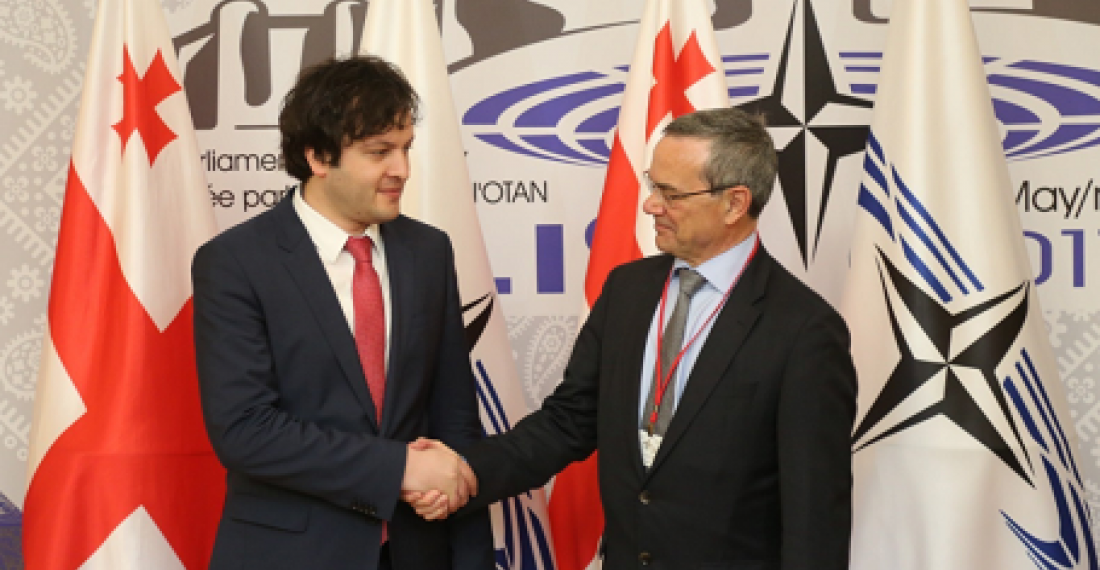The President of NATO's Parliamentary Assembly Paolo Alli insisted Friday that stability in the Caucasus and around the Black Sea is inextricably linked to Western security. He cautioned Russia not to further increase tensions in the region and reaffirmed support for the aspirations of Georgia and Ukraine to move closer to the West.
"The security and stability of this region is crucial for Euro-Atlantic security and stability," Alli told a news conference at the start of the NATO PA's Spring Session, held this year in Tbilisi.
Speaking alongside the Chairman of Georgia's Parliament Irakli Kobakhidze, Alli said the decision to hold the meeting of lawmakers from NATO Allies and partners in Tbilisi, underscored backing for Georgia's efforts to draw closer to Euro-Atlantic institutions.
This is only the fifth time in its six-decade history that NATO PA has held a session in a country outside the trans-Atlantic Alliance. "We think that Georgia will become a member of NATO," said Alli, an Italian legislator elected head of the Assembly last year, "this was the decision Allies made in Bucharest, and this decision remains".
The four-day NATO PA meeting opened a day after Alliance leaders held a summit in Brussels which stressed unity in the struggle against terrorism and highlighted the need for Allied nations to boost military capabilities to better share the security burden. Both issues are high on the agenda of the Assembly's session.
The NATO summit also reaffirmed a dual-track approach with Russia combining strong defence with an opening for dialogue to reduce risks.
Russia and security around the Black Sea will be a major theme of the Tbilisi session, held barely an hour's drive from South Ossetia, one of two Georgian regions under illegal occupation since Russia's military intervention in 2008.
Alli warned that Alliance nations and partners in the Balkans and Black Sea regions need to be alert to Russian attempts to undermine their security. "Everybody must be conscious that the hybrid threat ... is not only military operations now, it means propaganda, it means cyber-attacks, it means many things that we are discussing," he said.
The NATO PA session is expected to adopt a declaration urging NATO nations to enhance political and practical support to Georgia in the process of NATO integration. Alli said he was sure Allied governments would take account of the declaration and that it could be a factor in speeding up that process.
More than 200 lawmakers from parliaments of NATO Allies and 21 partner countries are attending the meeting in Tbilisi. Other issues on the agenda include security challenges in the Arctic; the humanitarian and security implications of the war in Syria; and ballistic missile defence.
source: commonspace.eu with nato-pa.int
photo: The President of the NATO Parliamentary Assembly with the Chairman of the Georgian Parliament in Tbilisi on 26 May 2017.






